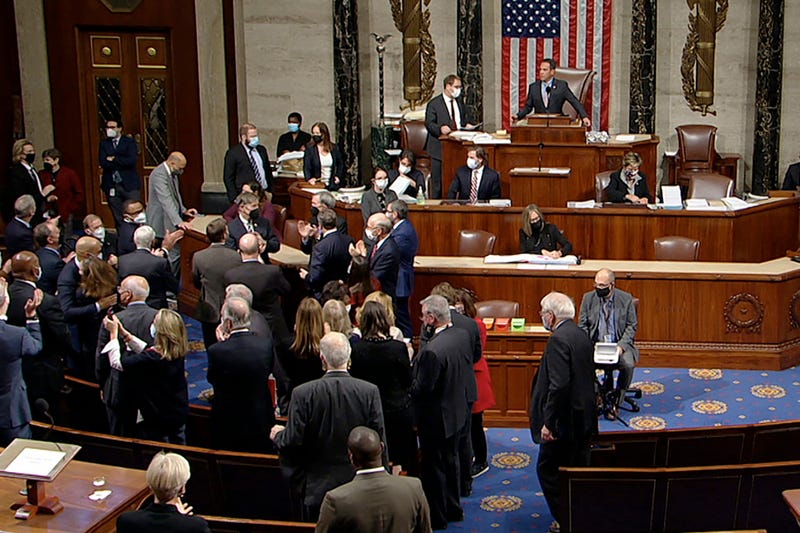
The House of Representatives passed a $1.2 trillion bill to bolster the nation’s infrastructure late Friday night after months of uncertainty and potential political impasse due to disagreeing moderates and progressives.
The bipartisan measure, encompassing the first pieces of the Biden administration’s economic plan, passed 228-206 around 11:25 p.m. with support from nearly a dozen Republicans. Six Democrats opposed the measure.

It’s a victory the White House is delighted to tout after some blamed Republican wins in Tuesday’s elections on a lack of action from Democrats in charge.
The legislation — aimed at widening access to broadband across the U.S and improving water systems and other public utilities — would create thousands of jobs and opportunities.
Congress will now send the bill to President Biden for his approval. The Senate approved the bill two months ago 69-30.
The six Democrat holdouts were Rep. Jamaal Bowman (N.Y.), Cori Bush (Mo.), Alexandria Ocasio-Cortez (N.Y.), Ilhan Omar (Minn.), Ayanna Pressley (Mass.), and Rashida Tlaib (Mich.).
Legislators postponed a vote on the second, more expensive proposal – a $1.75 billion climate change plan.
“As part of this agreement, at the request of the President, and to ensure we pass both bills through the House, progressives will advance” the legislation Friday night, Rep. Pramila Jayapal (D-Wash.), chair of the Congressional Progressive Caucus, said in a statement.
President Biden issued a statement Friday night.
“I am urging all members to vote for both the rule for consideration of the Build Back Better Act and final passage of the Bipartisan Infrastructure bill tonight,” he wrote. “I am confident that during the week of November 15, the House will pass the Build Back Better Act.”
Progressive Democrats wanted to force a vote on the two large spending bills simultaneously to pressure more moderate Democrats to vote in support.
Midway Friday, a handful of moderate Democrats declared they would not support the climate change legislation that aims to tackle healthcare, education, and family issues until the Congressional Budget Office estimated its actual cost. That will take days, congressional representatives said. The proposal also includes tax breakers for electric vehicles and clean energy options, work permits for immigrants, and paid family leave.
“The whole day was a clusterf--k, right?” quipped Rep. Mark Pocan (D-Wis.). Pocan helped negotiate the harmonization among Democrats. “But beyond that, I thought everyone was working in a very congenial way. I mean, rank and file members figured out how to get sh-t done.”
“At the end of the day what we all want to do is get the president’s agenda done, and that’s what we’re going to do,” Pocan continued.
If the large, second bill were to pass the House, it still needs to garner support in the Senate. Democratic Sens. Joe Manchin (D-W.Va.) and Krysten Sinema (D-Ariz.) could be holdouts.
Democrats have already slashed the bill’s price tag nearly half from its initial $3.5 trillion valuation. Republicans believe it’s too costly, even at $1.75 billion. But the funds would be recaptured by increasing taxes on corporations and wealthy earners.

